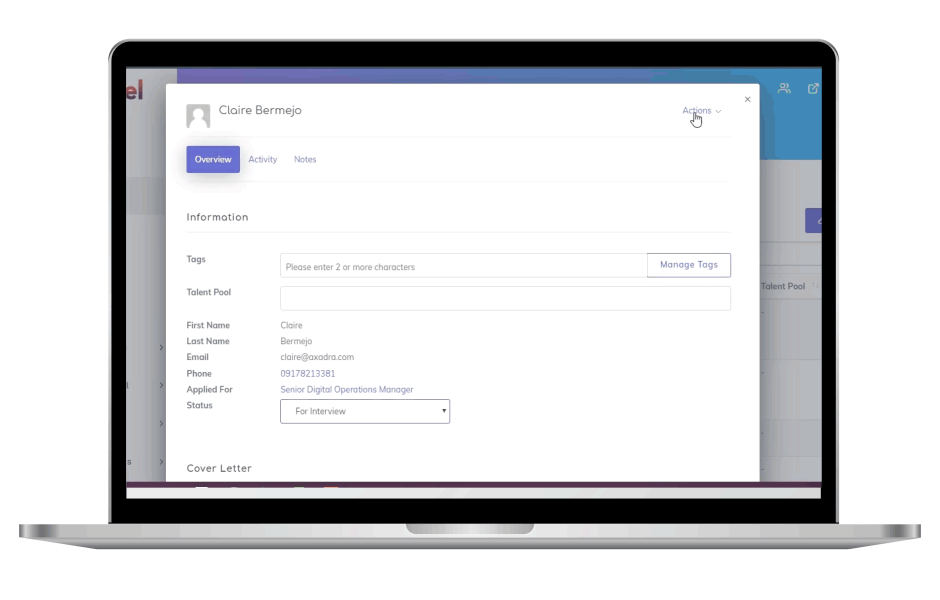Which would you pick, a candidate that has skills vs. a degree?
The rise of online learning platforms, coding boot camps, and self-directed learning has made it possible for individuals to acquire highly specialized skills without officially going to college and getting a degree in that field. This has sparked a debate about whether prioritizing skill development over a college degree is more effective as a recruitment strategy.
This article discusses the differences between focusing on skill development and having a college degree and the advantages each approach offers.
The Case for Skill Development
Skills are abilities and expertise that are directly relevant to performing tasks effectively. These include both technical and soft skills, which can be developed outside of the academic setting.
Some people argue that hands-on skills matter more than just fancy degrees. They argue that someone who has practical experience in the field – and therefore the necessary skills – offer more value for companies than someone who has a degree that focused more on theory.
Many professionals nowadays focus on skill development through online courses, workshops, and hands-on experiences. This approach to professional development is not exclusive to those without a college degree. Many diploma-holders do this to shift to a career that’s different from what they studied.
Skills development courses also allow individuals to stay current with industry trends and technologies, making them more adaptable and immediately valuable to employers.
The Benefits of Skills-Based Hiring
Focusing on practical skills during recruitment offers several advantages:
Enhanced Job Performance: Candidates with proven skills are often better equipped to perform their roles effectively from day one. This can lead to higher productivity and quicker onboarding.
Increased Diversity: Hiring based on skills can open doors for candidates from non-traditional backgrounds who may not have formal degrees but possess valuable experience and abilities. This approach fosters a more diverse workforce.
Adaptability: In an ever-changing job market, prioritizing skills allows organizations to quickly adapt to new technologies and practices. Employees with strong skills can pivot more easily as business needs evolve.
Cost-Effectiveness: Skills-based hiring can reduce recruitment costs. Hiring candidates who already have the necessary skills can minimize training time and expenses.
Cultural Fit: Candidates selected for their skills may align better with a company’s culture and values, as they are often more passionate about their craft and willing to learn and grow.
By prioritizing skills over degrees in recruitment, employers can create a more dynamic and capable workforce that is well-suited to meet the demands of their industry.
The Case for College Degrees
Earning a college degree provides individuals with a structured education, encompassing a broad range of subjects and disciplines. This academic journey helps develop critical thinking, analytical skills, and a deep understanding of theoretical concepts in a particular field. Degrees also offer networking opportunities and access to resources that can be pivotal in starting one’s career.
Having a college degree has been the basic requirement for most jobs nowadays. Fresh graduates, in particular, tend to gravitate toward jobs that are related to their degrees. Conversely, employers tend to consider candidates’ educational backgrounds during the recruitment process.
Those who prioritize education as a major qualification argue that a college degree guarantees specialized knowledge and skills. Since students go through years of in-depth training, employers trust that they graduate with invaluable skills that will allow them to perform in the workplace.
A college degree is not only a guarantee that the individual has the relevant knowledge and skills in their industry, but it is also viewed as a testament to their ability to commit to years of hard work and to succeed in a structured environment.
The Benefits of Prioritizing Degrees
Focusing on hiring candidates with degrees has its own set of advantages:
- Assured Knowledge Base: Degrees often indicate that candidates have undergone rigorous training in their field, suggesting they possess a foundational understanding that can be essential for certain roles.
- Lower Turnover Rates: Employers might find that degree holders are more committed to their careers and organizations, resulting in lower turnover and a more stable workforce.
- Meeting Industry Standards: In some sectors, having a degree is a legal or professional requirement, ensuring that employees meet specific standards of expertise.
- Structured Problem-Solving Skills: The educational process often hones analytical and problem-solving skills, which are critical in many job roles.
- Easier Screening: Filtering candidates by degree can simplify the recruitment process, allowing employers to quickly narrow down a larger pool of applicants.
Prioritizing having a degree vs. having skills in candidates can help organizations maintain a standard of quality and expertise, particularly in fields where educational credentials are critical.
So, Should You Focus on Having Skills Or Having a Degree?
While the debate between skills and degrees would have you believe that only one should be prioritized, the truth is that both have their merits and play vital roles in the workplace. In today’s competitive job and business landscape, employers are increasingly recognizing that a balance between skills and degrees is ideal in finding candidates who can offer value.
Balancing these two offers significant benefits:
- Holistic Candidate Assessment: Relying solely on one approach can lead to a narrow view of a candidate’s potential. A balanced approach allows employers to consider both formal education and practical skills, creating a more comprehensive evaluation.
- Adapting to Industry Changes: As industries continue to change rapidly due to technological advancements, the value of hands-on skills is becoming more apparent. However, the foundational knowledge provided by a degree remains relevant, especially in understanding complex theories and frameworks.
- Future-Proofing Talent: Candidates who possess both practical skills and a degree are often more adaptable, making them better suited for roles that require continuous learning and growth.
Building a Well-Rounded Workforce
Isn’t it a relief not having to choose between skills vs. degrees? Each one is a part of a puzzle that creates a competitive and adaptable workforce. Striking a balance between the two approaches is essential for building a capable and resilient team.
By recognizing the strengths of both skills and degrees, organizations can attract top talent that is well-prepared to meet the challenges of today’s market. In the 21st century, fostering a workforce that embodies both practical skills and academic knowledge is the key to long-term success.
Find the talent with the right qualifications for your organization with Skillfuel’s recruitment management system. Sign up for a free version of our software or contact us for inquiries!
















